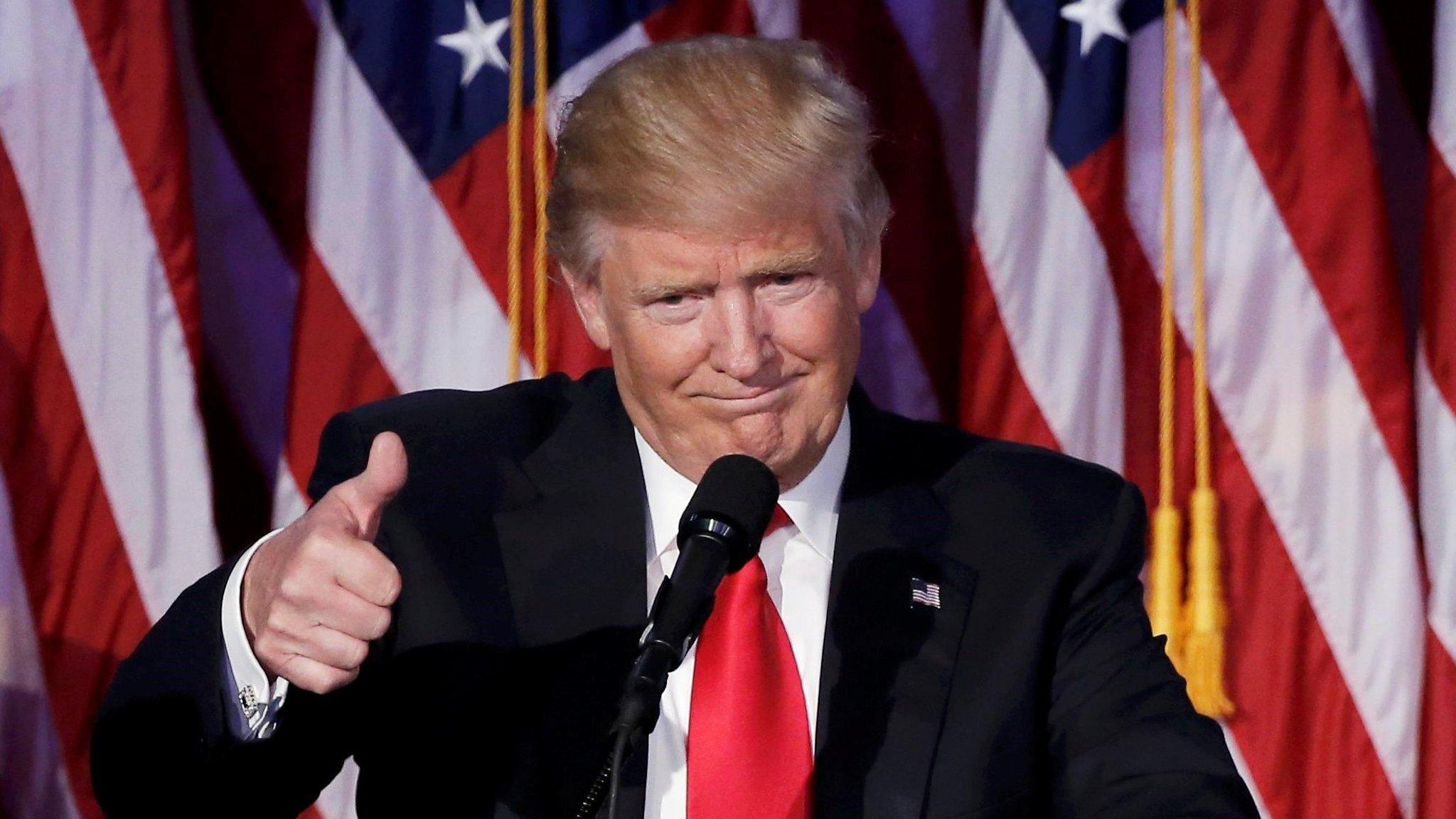Trump victory: What does it mean for the markets?
- Published
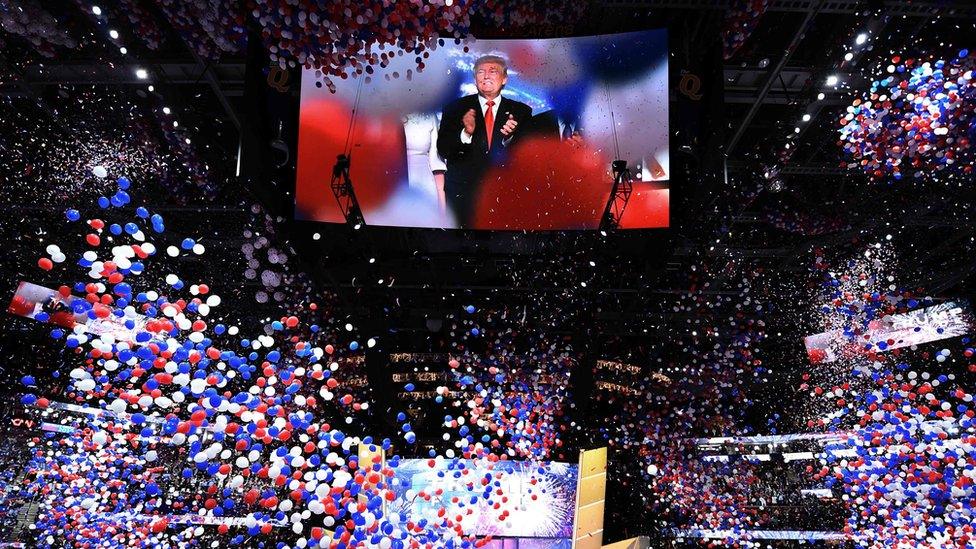
Brexit, at least, meant Brexit. Trump means - what exactly?
Markets were able to fasten on to a single development after the UK's June vote to leave the European Union and react accordingly.
Donald Trump's victory in the presidential election, however, is more confusing.
He is seen as the anti-globalisation candidate, yet has benefited greatly from the breadth and depth of international capital markets.
Most notably in the early 1990s, his property, casinos and airlines empire was tottering on the brink of bankruptcy before being saved by three Japanese banks - Mitsubishi Trust, Sumitomo Bank, and Dai-Ichi Kangyo.
Mr Trump has said he will bring jobs back to the rust belt, without any concrete plan on how decades of a swift-running competitive tide that has taken away that employment will be reversed.
He says the American economy will grow by 5-6% a year, yet no economist thinks it has the capacity at the moment to do more than 2%.
He has at various times said that he will either repudiate or renegotiate the national debt, a move that at face value has the potential to crash the world economy.
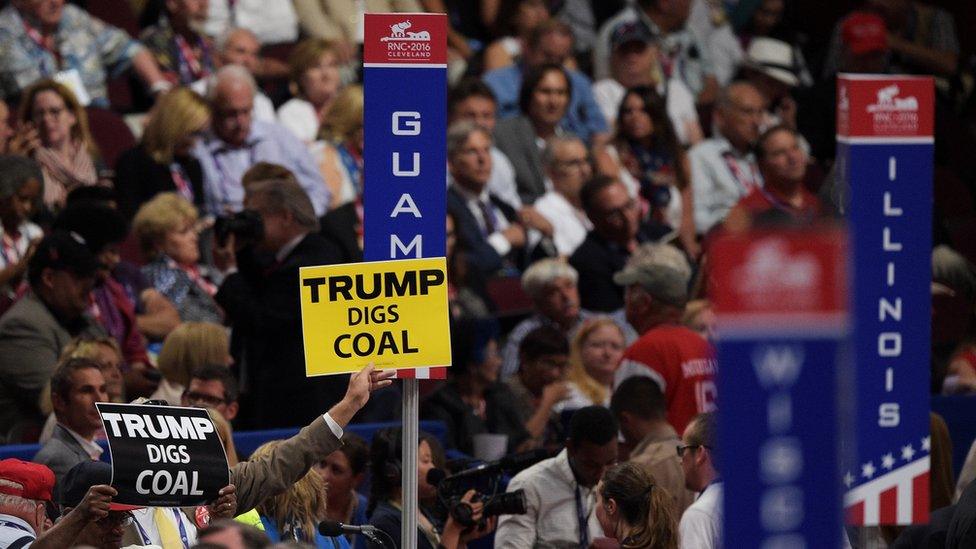
Grasping the reality, as the muted stock market reaction in the UK shows, is difficult.
Trump may carry out his threat to weaken ties with Nato, meaning a bet on shares of defence companies like BAE Systems is a good one. A Nato without American back-up would probably mean Britain and other countries having to spend more on weapons.
Trump may also make good on his promise to bring in tariffs against imports from cheap competitors like China and Mexico, meaning selling shares in shipping companies is probably a good call.
But analysts making those recommendations to their institutional clients will do so with little conviction. They cannot say they know what Trump will do when he takes office on 20 January.
There is one reference point from which to navigate. Trump has been extremely critical of America's Federal Reserve - its central bank - and the low interest-rate policy it has pursued, at one stage accusing of Fed chairwoman Janet Yellen of being politically motivated in favour of Hillary Clinton.
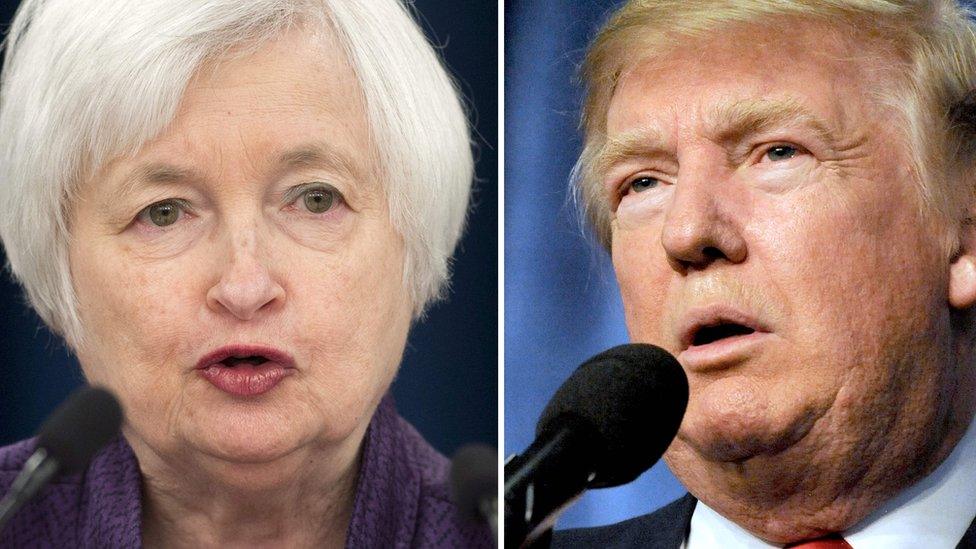
The incoming president cannot sack Yellen, but she might resign.
That would mean the interest rate hike expected in December is off for the time being, and that any expectation of a UK rate increase in the near term is also on hold.
In the longer term, rate expectations may have to be completely revisited. Trump has hinted that he would like a more hawkish Fed chairman, meaning US interest (and eventually world) interest rates would rise much further and faster than anyone would have thought likely a few days ago.
The other immediate focus will be trade.
Megan Greene, an economist at the Canadian asset manager Manulife, says Trump's bellicose plans, with threats of immediate tariffs on Chinese goods and a crackdown on Mexican imports, will trigger a US recession.
A recession in the world's biggest economy with world trade already faltering could tip the global economy over the edge. Trump, in the end, might mean slump.
- Published9 November 2016
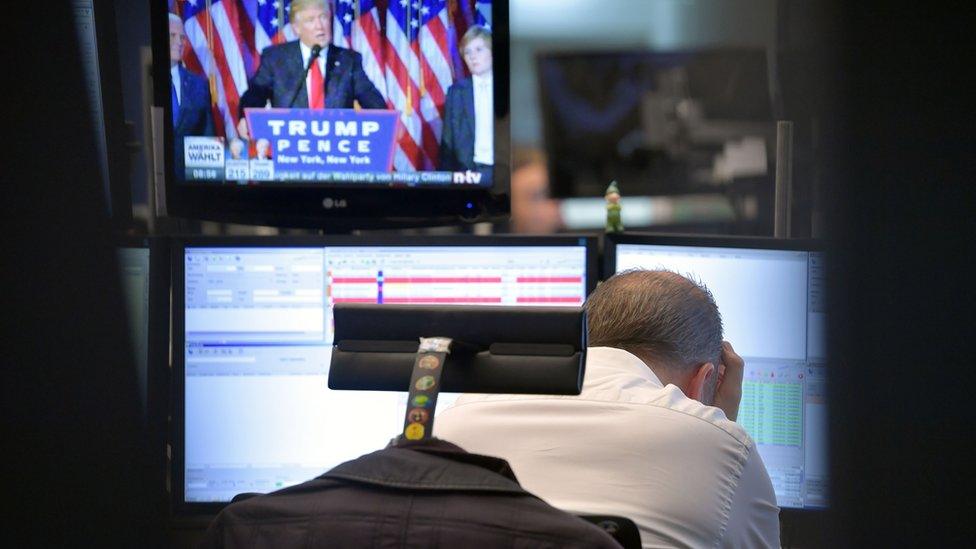
- Published9 November 2016
